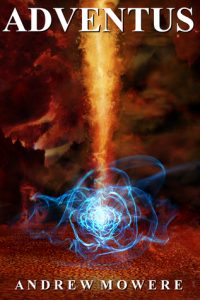On Multicultural Worlds (Guest Post by Andrew Mowere)
We’ve all seen the novel before: Chainmail, a warrior with a barbute riding atop a horse to save a princess from a tower, perhaps a brief introduction of Vikings or scantily clad barbarians.
Euro-centrism in fantasy is not only good, but also needed. A great deal of the stories we grew up on have been Euro-centric and we are nothing if not influenced by the sights that we see. Moreover, our past is important. Likewise, there has been fantasy in other settings, such as African or Asian-centric works. Children of Blood and Bone comes to mind.
But say this isn’t enough? Say that you are fascinated by the forgotten realms, or Garrett Robinson’s Nine kingdoms? Say you wish to see a realm that is a world and not a continent?
I am here to tell you of my experiences as exactly such an author.
I first attempted to create a multicultural world with a realm that had simply been called ‘the realm of the unchained’. This world was shaped EXACTLY like our own, and its peoples were the same races. Europeans lived in Europe, Africans in Africa, and so on. Although my stories had their own troubles, the world itself lacked something.
You can’t simply slap a turban on someone and call them an Arab because these things come from deeper cultural influences. And my setting felt so CLOSE to real that it meant a lack of historical accuracy created a mess. All the cultures felt off because even though I could recreate clothes and describe customs, the history of this world was different from our Earth, and it just didn’t fit. It was passable, but not enough.
I retreated, realizing that you cannot lean into historical accuracy when writing so many cultures. Or at least, I could not. The research would be unbearable.
Later came Grimea. What I first began with was ask: Where did the world start, what’s in it, how does it work?
You see, you don’t place 13th century Europe next to 13th century Asia in a fantasy setting because they would simply interfere with one another. For one, how would things that were invented in 11th century Asia influence the way 13th century Europe. This is where imagination comes in. You are, in fact, writing a fantasy and your imagination matters. What I attempted was something subtle.
My first trick was to take two or three world languages and place them into each of my four continents. German and French went into Veld. Igbo and Swahili created my Baku, China and Japan my Sehkai, and Russia gained its own continent (Jerr). This was a solid base, something rather strict, at least in the beginning. It doesn’t have to be the languages, but I think there is something to be said for having a solid bedrock to ground the work slightly.
Next came the slight… flavor, let us call it. Languages are not enough.
We know that Eastern Asia invented printing presses quite early, and so I made books readily available in my world. We know that the Igbo people have interesting burial habits, and so these went to the Ghouti tribes, added to modified versions of the clothes they wore a few hundred years ago. Minor trivia and known facts became the bases of the world. I sprinkled tiny customs everywhere, enough for one to imagine the place. It is the same way we think ‘Japan’ when seeing one sitting in the famed seiza position or ‘France’ when seeing a few certain dances. The goal here was to create a feel for these populations, not to replicate them. The same is done in Euro-centric fantasy, if you really think about it. The castles, forts, and foods all stem from how Europe was back in the day.
One thing you should avoid is sloppy replication. It leads to stereotypes and suddenly, your readers become angered. To avoid this, new customs can be added and others changed. The key is to consider why and how a custom or belief begins. If you do that, then practically any custom can be created. An example in Grimea is the Jerrian tendency to bow with arms outstretched when appeasing a superior. The gesture is meant to say ‘enslave me’ because that continent is full of slavery.
Myths, legends, gods, and creatures of the land? I suggest you make them yours. We all love fantasy based on folklore, but there’s a place for us to create as well. Then again, this is a biased opinion.
In Grimea, and I suggest you do the same, I set the clock turning. I created little stories and myths in my world bible that aided in making Grimea dynamic in my mind. This work, all of it, culminated in a novel that I consider my true debut.
In conclusion, I truly believe that a multi-cultural fantasy realm can be interesting, but it has to be more than a graft. Beginning with a solid foundation, adding flavor, and then twisting everything with my own imagination produced a world I love, and a hope a similar process can work for you too.
Adventus is a story about refugees. In the year 1100 Post Kerdallus, three portals open in Grimea, spilling out dwarves, elves, and orcs. The world leaders scramble, then decide to send a joint mission in a diplomatic effort to show unity. Yuuto is Yotaku’s representative. He knows that this is a game of spies, and he will do anything for his country. It is currently available for preorder, with a planned release of 1st September 2018


[…] have just had my guest post on multi-cultural writing on The Fantasy Hive whom, by the way, I had been begging to read my books for a few novels now. Looking back on it, […]
Thank you for having me. This was a pleasure to work on! (Andrew)